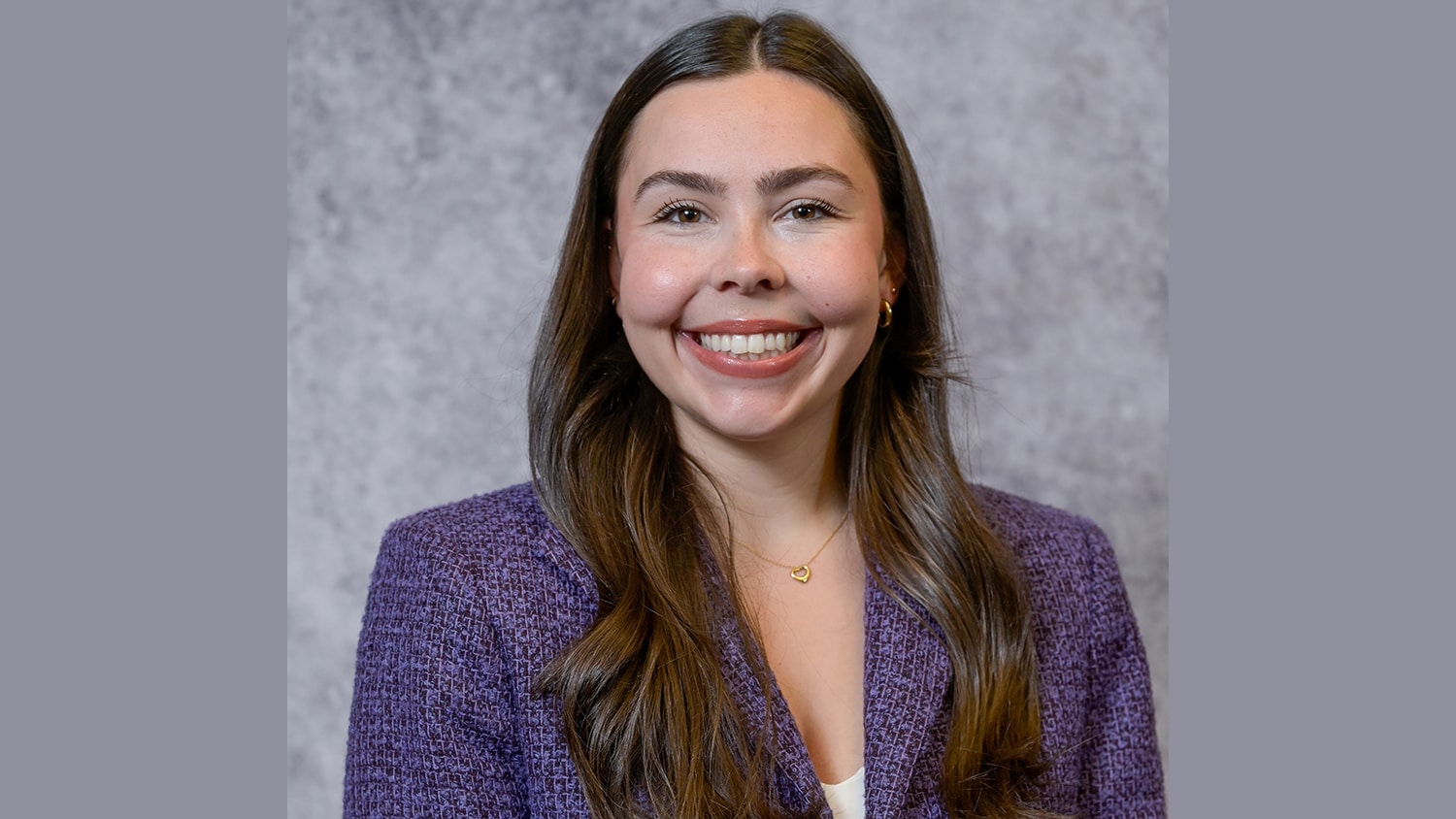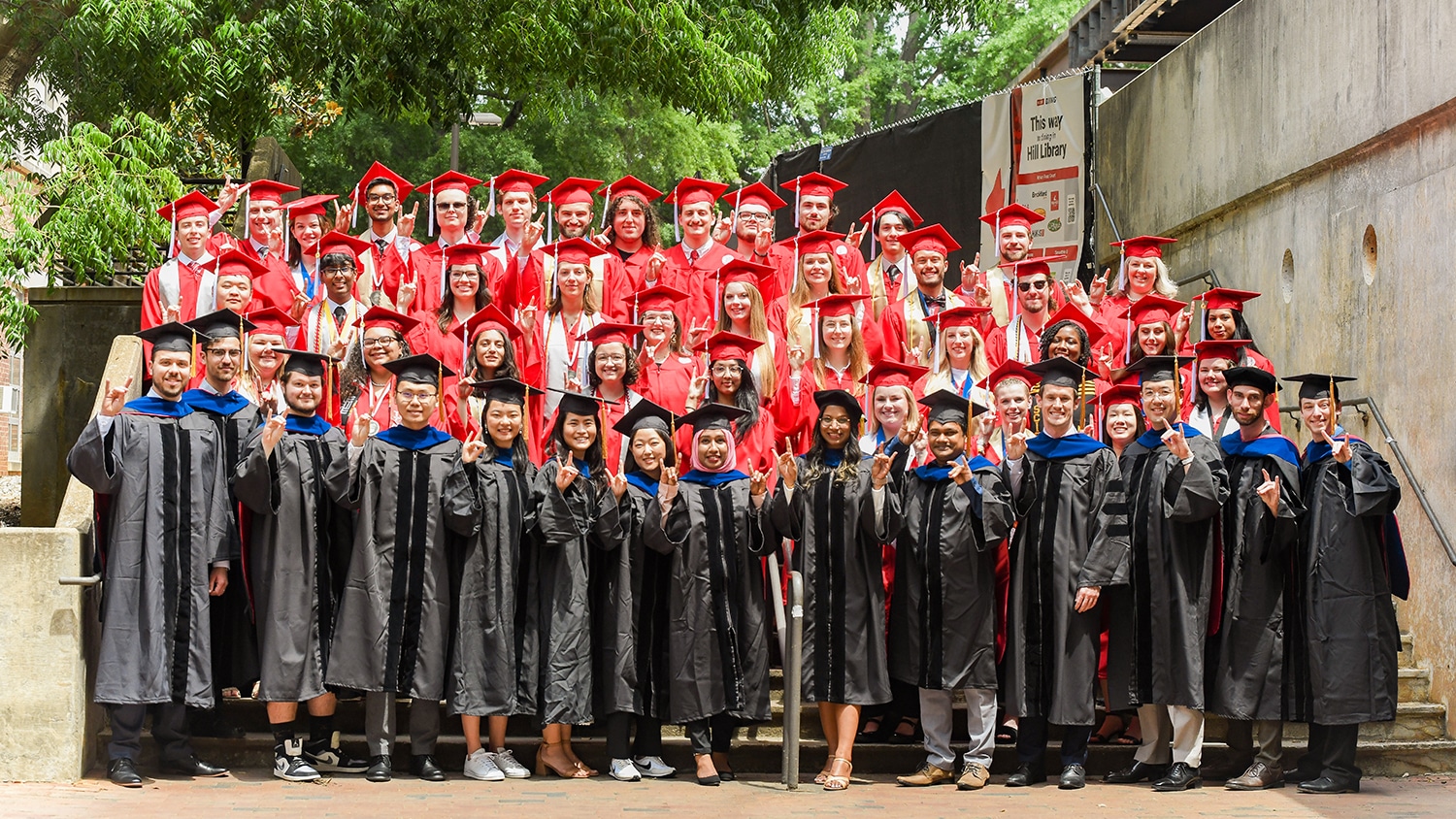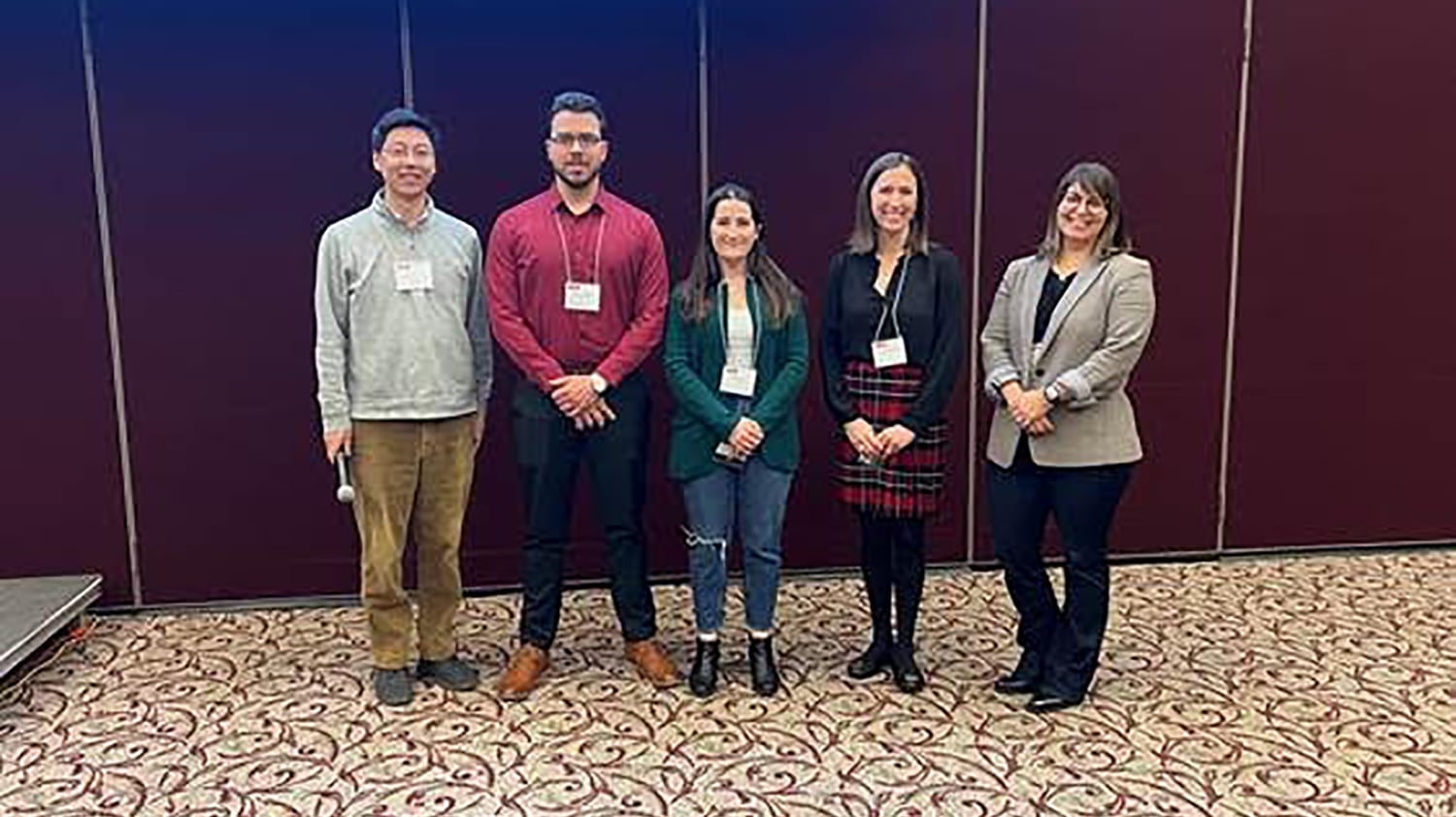Shipman’s Poster, First Place Winner
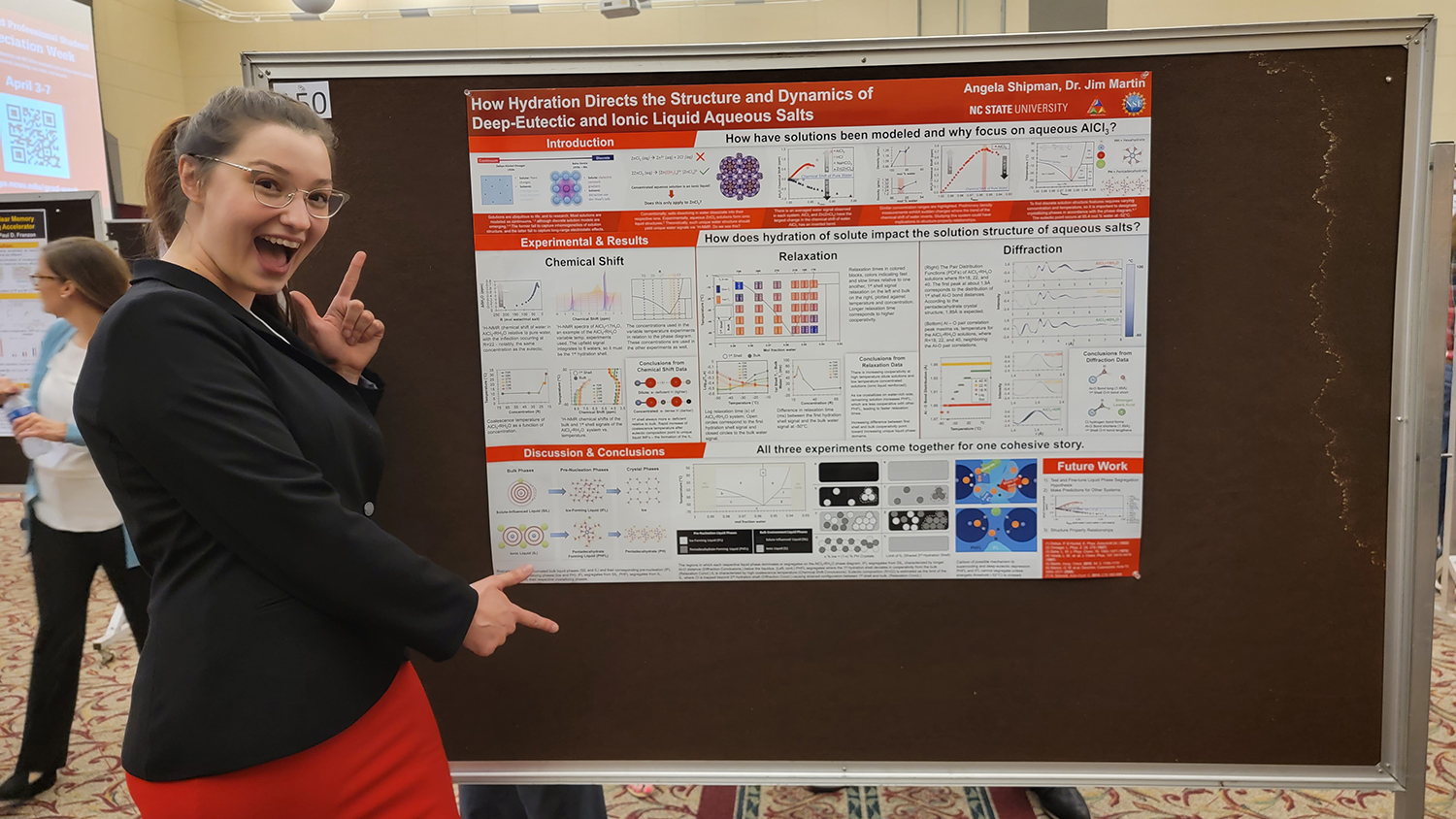
On April 5, 2023, the Sixteenth Annual Graduate Student Research Symposium was held at the McKimmon Center, showcasing the outstanding quality and diversity of NC State’s graduate-level research. First-, second and third-place winners have been announced in nine categories: Agricultural Sciences, Design, Education, Engineering, Environmental Sciences, Humanities, Life Sciences, Social Sciences and Management, and Mathematical and Physical Sciences.
The first place winner for the category of Mathematical and Physical Sciences was a poster titled, “How Hydration Directs the Structure and Dynamics of Deep-Eutectic and Ionic Liquid Aqueous Salts,” by Angela Shipman, a graduate student in the Chemistry department. Angela summarized the contents of her poster and solution-based research as follows.
“At the heart of most reactions is a flux or solvent medium, be that in CO2 capture, synthesis of new materials and pharmaceuticals, deep eutectic solvents, ionic liquids, water-splitting, computational modeling, etc. We are taught in General Chemistry that liquids consist of “randomly oriented particles” with no particular structure, allowing researchers to dismiss “non-ideal” deviations in chemical properties. I am discovering that liquids have more structure than is conventionally thought through the use of chemical shift and relaxation 1H-NMR and X-ray and neutron diffraction techniques. As a case study, four unique and coexisting liquid-domains yield distinct bulk properties as a function of concentration and temperature in the aqueous AlCl3 system. These conclusions provide insight into a deeper fundamental understanding of solution-based chemistry.”
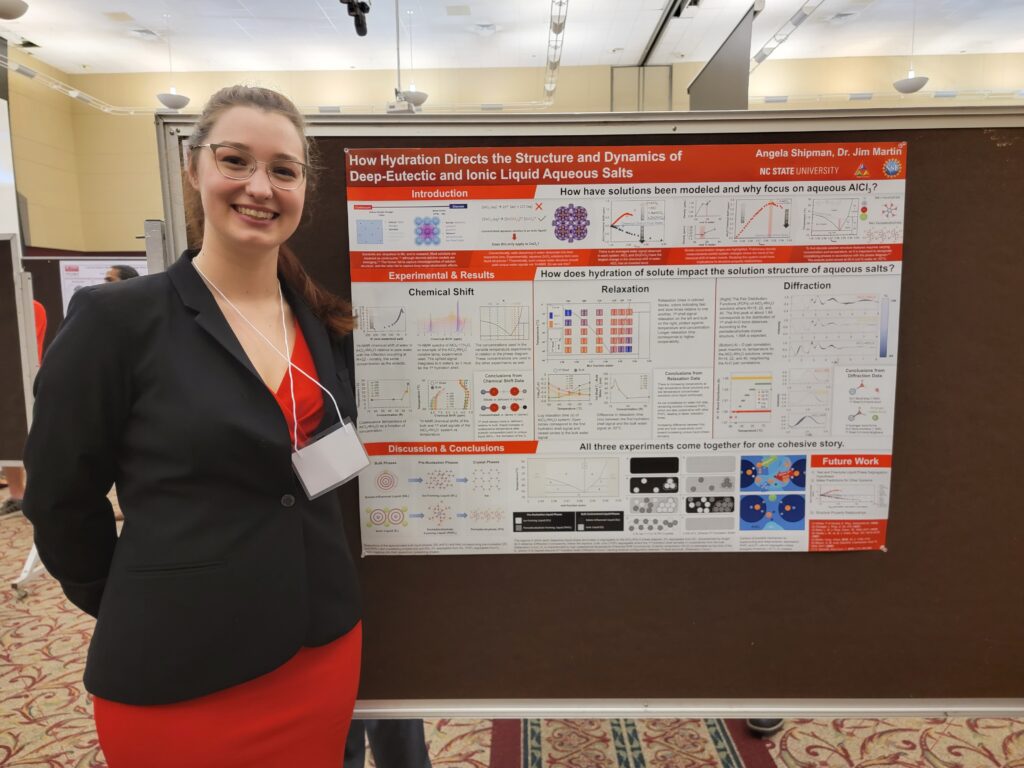
In other words, her findings contradict the notion of General Chemistry that liquids are structure-less yielding fundamental knowledge about why solutions may deviate so much from “ideal” chemical properties. By using solution-based chemistry techniques that monitored temperature as a function of different variables (concentration, interatomic distances, chemical environment, etc.,) Angela showed that aqueous solutions’ unique properties are not just a matter of being a “structure-less liquid,” but rather structurally discrete liquid phases. The future plans for this discovery include fine-tuning the Liquid Phase Segregation Hypothesis and making predictions for other systems (besides the aqueous AlCl3 solution used for this project).
Angela Shipman is a graduate student in the Chemistry department at North Carolina State University, currently pursuing a Ph.D. in Inorganic Chemistry using her condensed matter chemistry expertise to understand solutions’ structure-property relationships. Angela intends to advance industrial solutions for carbon sequestration and water splitting. She was the president of the Chemistry Graduate Student Association for the year 2022-2023. She is currently an Inorganic Chemistry graduate research assistant in Dr. James Martin’s group and a teaching assistant for General and Inorganic Chemistry classes. Angela enjoys singing, painting, photography, martial arts and playing video games in her spare time.

The Department of Chemistry congratulates Angela for her remarkable achievement and appreciates the hard work she puts into research, teaching, and leadership.
- Categories:
